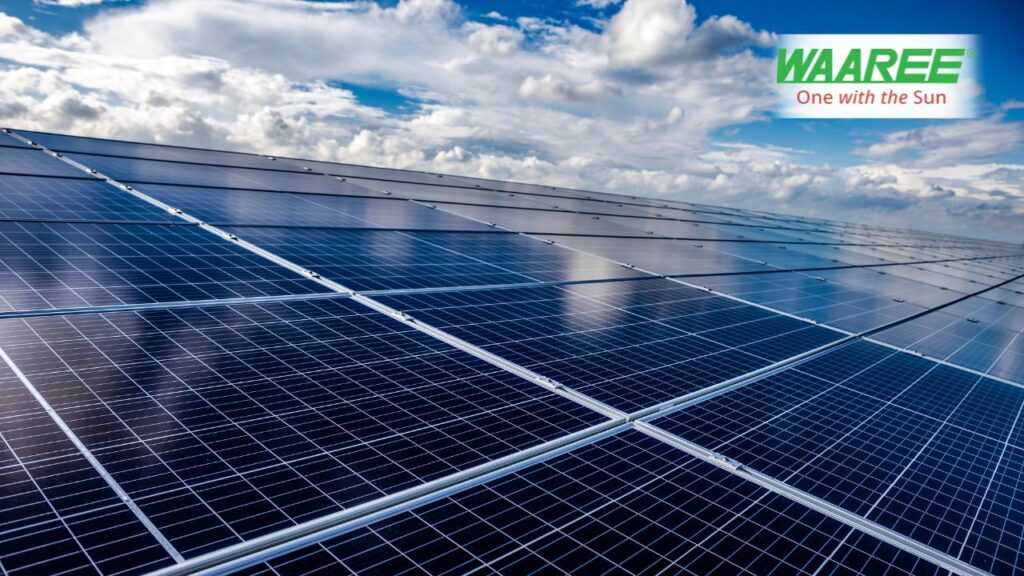Waaree Energies, one of India’s leading manufacturers of solar PV modules, has provided 68 MW of solar modules to Gensol Engineering for a solar PV project. These modules, known as bi-facial modules, have the unique capability of generating electricity from both sides.
In a statement, Hitesh Chimanlal Doshi, Chairman & Managing Director of Waaree Energies, expressed the significance of projects like Mahagenco (solar PV project) in realizing India’s vision of a greener future. He emphasized that such initiatives not only contribute to reducing carbon emissions but also stimulate economic growth and create employment opportunities within the renewable energy sector.

The partnership between Waaree Energies and Gensol Engineering underscores the importance of leveraging renewable energy solutions to address environmental concerns while fostering sustainable economic development. Through their collaboration, these companies are advancing India’s transition towards a cleaner and more sustainable energy landscape.
Waaree Energies‘ supply of 68 MW solar modules to Gensol Engineering for the solar PV project reflects their commitment to driving the adoption of renewable energy technologies. By harnessing the potential of solar power, they aim to contribute to India’s efforts in combating climate change and promoting a green and sustainable future.
Why is Solar Energy Important?
Solar energy is a crucial renewable resource with significant environmental, economic, and social benefits. Harnessing energy from the sun reduces our dependence on fossil fuels, which are finite and contribute to pollution and climate change. Solar power generation produces no greenhouse gas emissions, helping to mitigate global warming and improve air quality.
Economically, solar energy can lower electricity costs for households and businesses, providing a sustainable alternative to traditional energy sources. It also creates job opportunities in the manufacturing, installation, and maintenance of solar panels, boosting local economies.
Additionally, solar energy promotes energy independence and security. By utilizing a readily available and abundant resource, countries can reduce their reliance on imported fuels, enhancing their energy resilience.
In conclusion, solar energy is vital for creating a cleaner, more sustainable future, driving economic growth, and ensuring energy security. Its adoption is essential for addressing global environmental challenges and fostering long-term ecological balance.


